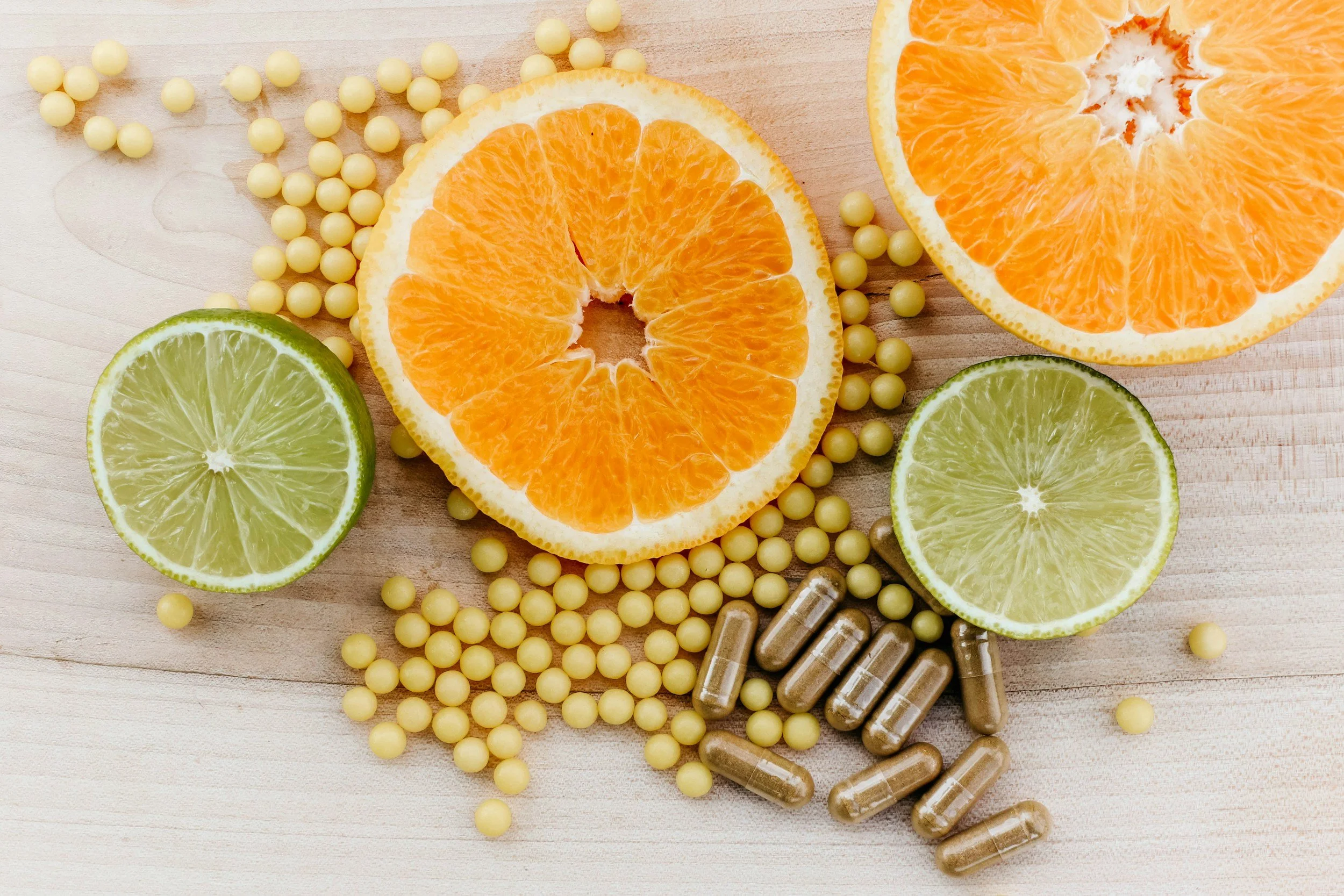Vitamins & Minerals. Recommendations.
A Glasgow Personal Trainers Thoughts…
Its officially Autumn, the clocks have gone back, there’s less hours of sun in the sky, so now is the ideal time start supplementing your diet. By supplementing your diet with certain vitamins and minerals you will keep your: health reserves high, reduces cold and flu symptoms, and get the most out of your training. I’ve only chosen vitamins and minerals that are hard to achieve an adequate amount of from food, have low toxicity levels and have a major impact on health.
The first piece of advice I would give is to avoid multi-vitamins. The reason being they are often too high in vitamins you don’t need extra of, and too low in the ones you do need more of.
The second piece of advice I would like to give is: a diet high in nutrients, will give you almost all the vitamins and minerals you need. Make sure you keep eating a lots nutritious foods throughout the Autumn and winter months that will provide you with the majority of the vitamins and mineral you need.
Vitamin D3
Why We Need Vitamin D3
Optimum bone and muscular health.
Proper immune function.
The NHS has recommended that people take a vitamin D supplement this Autumn/ Winter to help reduce the risk of Covid-19.
Associated with lower cancer rates, cardiovascular disease, and improved immune responses to infections like flu.
Studies have shown that people with higher vitamin D levels are significantly less likely to die from any illness.
Deficiencies
Studies have shown hat the further north we live (less sun) the more likely you are to die of cancer.
Bone related health disorders like rickets and osteoporosis.
More likely to suffer from infectious diseases like flu.
Natural Sources
Normally we produce Vitamin D under our skin when the sun shines on us. Thirty mins of sun exposure on naked skin is ideal. Sadly, as we’re all too aware, there is a lack of significant amounts sun from Autumn to Winter in Scotland.
Cod liver oil.
Amounts
According to the Institute of medicine we should supplement our diet with about 25-100 ug (micro grams).
During the summer months aim for lower on the scale Vitamin D3 and in Winter at the higher end.
I would also advise you to take it in the morning as this is when we would normally receive the sun’s rays.
Special Care
Vitamin K2 helps store vitamin D3. You can get all the vitamin K2 you need from eating green bitter veg like kale, broccoli, and green beans. If you struggle eating enough vegetables, consider supplementing with vitamin K2.
Zinc
Why We Need It
Helps immune system fight off bacteria and viruses.
Helps make proteins and DNA.
Improves neuromuscular health.
Deficiencies
Impaired immune function.
Hair loss.
Poor wound healing.
A contributing factor to depression.
Natural sources
7 oysters a week provides you with the ideal level of zinc.
Amount
Either eat 7 oysters a week or
Supplement lightly with 50 mg of zinc a week; anymore can be toxic to the body.
Special Care
Zinc needs to be balanced out well with copper so make sure you have enough copper in your diet from the following 115 grams of lambs liver a week, dark chocolate, nuts, and seafood.
Do not take to much zinc as it can have serious health effects. No more than 50mg a week.
Magnesium
Why
Involved in the production of 300 enzymes.
Involved in the production of energy molecule ATP.
Involved in the synthesis of DNA.
Involved in the synthesis of proteins.
Structural rolls in bones and cells
Needed for proper immune function.
Deficiencies
Deficiencies on magnesium have been found to cause or affect the following:
Mitochondrial decay.
Accelerated ageing.
High blood pressure.
Heart attacks.
Cardiovascular disease.
Muscle cramps.
Headaches.
Tremors.
Osteoporosis.
Natural Sources
Seaweed.
Nuts.
Coffee.
Tea.
Chocolate.
Amount
Normal amount needed for health- 400-500 milligrams.
Aim to get 200-300 a day through diet from the above food.
Supplement with- 200 mg a day.
Special Care
There are quite a few different types of magnesium that all have different roles to play in specific functions in the body. Each brand will have slightly different amount of the different types of magnesium, so why not try different brands from time to time to make sure you vary the different types of magnesium.
Conclusion
To recap I would recommend my clients supplement with 25-100 ug of Vitamin D3 a day, 200 mg of Magnesium a day, and 50 mg of Zinc a week. For such a small amount of effort this habit will have a massive affect on your health from gaining to muscle to avoiding colds.
